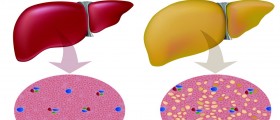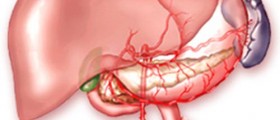
Cirrhosis Disease of the Liver Introduction
Cirrhosis is a term used to describe the consequences of chronic liver disease that is usually characterized by replacement of healthy liver tissue by scar tissue. The liver is one of the most important organs in a person’s body because it carries out more than a few important functions, some of them being: purifying the blood, being storage for energy, detoxifying harmful substances, regulating several hormones, producing blood proteins, etc. The normal liver is soft and smooth. Each time the liver is injured, it repairs itself.
That process leaves scars on the liver. With mild forms of cirrhosis, the liver can usually mend itself. However, with the advanced type, the more and more scar tissue appears, the less the liver is capable of functioning properly.
There are really a wide variety of causes that can lead to cirrhosis. These are: chronic alcohol abuse, hepatitis B and C, autoimmune hepatitis (which means that the body’s immune system is causing the liver disease), cystic fibrosis, Wilson’s disease (the excessive accumulation of copper in the liver), hemochromatosis (iron build-up in the body), galactosemia (the inability to process sugar in milk), etc.
Symptoms
The symptoms may appear late, without the person noticing anything until it is too late. It is very important that people get regular check-ups, so that the disease can be early detected and easily managed.
The symptoms of liver cirrhosis include: loss of appetite, tiredness and fatigue, weight loss, nausea sometimes, accompanied by vomiting, fluid build-up in the lower abdomen, and swelling in the legs.
The later stages of cirrhosis may cause jaundice, gallstones and itchy feelings all over the body.
Treatment
The treatment will usually focus on the underlying cause of cirrhosis. For instance, if alcohol dependence is the cause, the doctor will recommend a treatment program for alcohol addiction. Then, if hepatitis is the cause, the patient will be prescribed medications to control hepatitis. In Wilson’s disease, the doctor will prescribe the medication that will remove the excess copper from the patient’s body.Persons with advanced cirrhosis may need liver transplants if they are experiencing liver failure (this means that the liver can no longer function). Liver transplant is a surgical procedure in which the liver is removed and replaced with a whole liver from a deceased donor or with part of a liver from a living donor.

















Your thoughts on this
Loading...